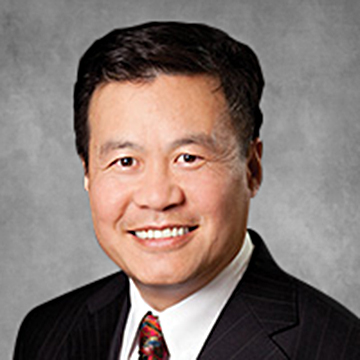

As technology moves toward machine learning and more advanced artificial intelligence solutions, businesses like Tom Chang MD's Acuity Eye Group have been using these techniques to utilize data in a more efficient way. Currently, healthcare is starting to explore the uses of AI and how it can increase positive outcomes. Some studies even suggest that AI can perform diagnosis and other healthcare-related tasks efficiently.
One benefit to AI is that it can scour immense amounts of data in a fraction of the time it would take to manually digest the same information. For physicians, this means access to the latest studies, journals, and information on their individual patient all in a relatively short period of time. Where a diagnosis once took a prolonged period of time, today's physicians can assess more information far more accurately with less wait time. This means that patients can start treatment sooner, which can improve outcomes in many scenarios.
Ways AI Will Revolutionize Healthcare in Coming Years
Artificial Intelligence is already being used in various specialties and healthcare as a whole. Tom Chang MD is the founder of Acuity Eye Group in California. This group offers the Acuity 360 eye exam -a screening test that is minimally invasive and performed in 15-20 minutes. With this technology they can detect a wide range of possible medical issues associated with the eyes. When it comes to vision health, early detection means a much better outcome for the patient.
Tom Chang MD is a world-renowned surgeon and educator in the field of ophthalmology who has lectured in 15 countries. He's been listed in the Who's Who and Best Doctors of America and has written more than 50 peer-reviewed publications.
"While I believe that physicians will always need to make the final decision in clinical care, there will be a fundamental change that will take place where AI programs will both guide as well as help monitor the clinical decisions that physicians make," said Dr. Tom Chang.
When it comes to their vision many patients put off going for checkups on a regular basis. Often, patients won't see an eye doctor until they’ve detected a problem on their own. Generally speaking, patients have a much better outcome when they are proactive about their healthcare. An eye exam may detect issues before patients would notice symptoms. Once vision is lost to eye disease, it may be difficult or impossible to recover the loss, making early detection critical to positive outcomes.
Using artificial intelligence and other machine learning initiatives, physicians can offer a more streamlined and convenient approach for patients, encouraging them to come in more often and not only when they detect an issue. It also allows physicians to more confidently offer diagnosis in a shorter amount of time because the information is more readily available.
"I firmly believe that with the imaging technologies that we currently have in ophthalmology that these programs can be developed with heuristic learning capabilities that will help guide Acuity physicians to provide even higher levels of clinical outcomes," Tom Chang MD explained. In the same way that computers have learned to make decisions that would “beat humans” at chess or Go, it is only a matter of time before computer algorithms are able to provide outcomes that surpass decisions made by clinicians.
Improved Patient Care with AI
There are many possible applications for AI in the healthcare field, including improvements in the way data is analyzed. For healthcare providers, this opens many options in terms of treatment protocols because AI can better gauge which therapies are likely to reap optimal results on a case-by-case basis. Sifting through information is only one aspect of AI.
People use AI every day when they speak to Siri or their Alexa at home. The same forms of AI will become more and more commonplace in physician's offices, as well. This allows physicians to note exams more efficiently in less time and record the data.
For patients, though, the use of AI will offer a major improvement. Issues such as long wait times can be mitigated with the use of AI to handle many of the administrative tasks that once took valuable man-hours. This makes scheduling more efficient and streamlines the process for the patient. Practices are also using better technology to allow patients to schedule appointments through web portals and sign in through an individual screen.
When physicians are able to make the appointment process more convenient and pleasant, patients are less likely to put off routine visits.
In regards to assisting in making medical decisions, Machine learning algorithms will help to navigate the increasing amounts of data that clinicians have to evaluate and codify in attempts to put these to use in the final decision analysis. Having a structured monitoring of clearly defined clinical outcomes will afford the machine learning algorithms a framework to demonstrate relative improvements in clinical care.